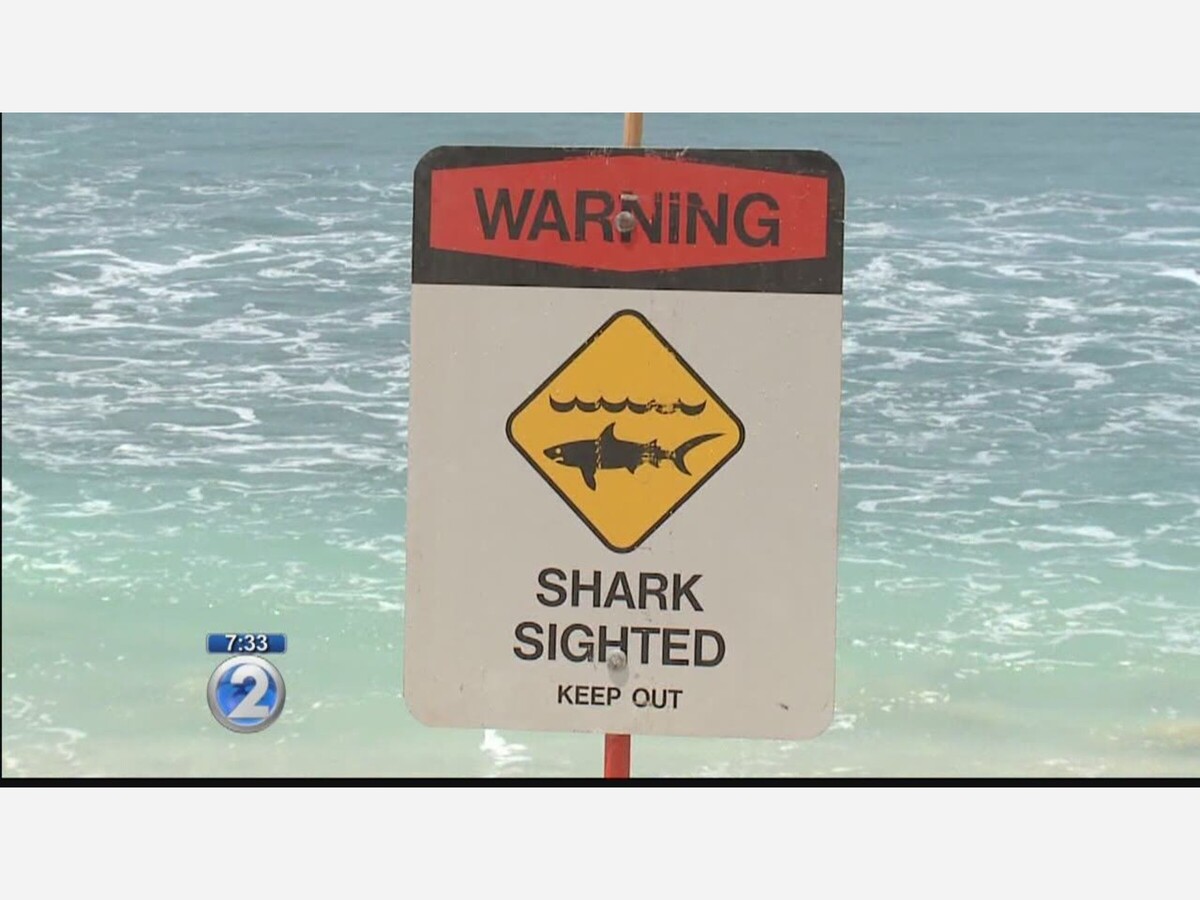Image

Shark Attacks Up In U.S.: How Common Is It Maryland?
Last year, more than a dozen people were injured in unprovoked attacks in the waters off the East Coast. Marylanders have reported 2 attacks
 There were 36 shark attacks in U.S. waters last year, more than half of the 69 bites reported worldwide. Since 1837, the first year for International Shark File data collection, two people in Maryland have been bitten by sharks. (Shutterstock)
There were 36 shark attacks in U.S. waters last year, more than half of the 69 bites reported worldwide. Since 1837, the first year for International Shark File data collection, two people in Maryland have been bitten by sharks. (Shutterstock)Despite fears of sharks swimming close to Maryland beaches, shark experts say the apex predators of the ocean are unlikely to bite. Still, it has happened.
Last year, more than a dozen people were injured in unprovoked attacks in the waters off the East Coast, according to the University of Florida’s International Shark File, a scientific database of global shark attacks. There were 36 shark attacks in U.S. waters last year, more than half of the 69 bites reported worldwide.
States with shark bites in 2023 included 16 in Florida, eight in Hawaii, four in New York, three in North Carolina, two each in California and South Carolina, and one in New Jersey.
Since 1837, the first year for International Shark File data collection, two people in Maryland have been bitten by sharks.
Two of the 10 shark attack fatalities worldwide last year were off the U.S. Coast. On Oct. 1, Felix Louis N’jai was attacked and eaten by a great white shark while swimming at Wildcat Beach, Point Reyes, California. And on Dec. 30, 39-year-old Jason Carter was attacked by a tiger shark while surfing off the Hawaiian island of Maui.
Although the 2023 global shark attack total is higher than the previous five-year average of 63 attacks, it’s consistent with long-term trends, researchers said.
Gavin Naylor, the director of the shark research program at the Florida Museum of Natural History, said in a statement that 2023 bites were “within the range of the normal number for bites,” although he acknowledged “the fatalities are a bit unnerving.”
Shark attacks are rare, though.
Statistically speaking, the chances humans will be attacked by sharks are practically nonexistent — about 1 in 3.7 million, compared with odds of 1 in 128 of dying in a fall. And while an average of 10 people a year die in shark attacks, about 150 people are killed by falling coconuts every year,
And even in the rare instances when a shark does bite, survival rates are about 90 percent. Most attacks involve “test bites” and if it’s a case of mistaken identity by the shark, it is likely to swim away rather than keep attacking. In the incidents in which sharks did continue to attack, tiger sharks, bull sharks and white sharks were most often involved, according to the researchers.
With their serrated, dagger-like teeth, they do look menacing — and that image alone can fuel galeophobia, or the fear of sharks. According to researchers, the false perception that sharks are menacing killers is fed by “Jaws” movies and other pop culture references, but has little basis in reality.
The low number of bites a year indicates sharks don’t feed on humans, and also that most bites are simply due to mistaken identity, Naylor said. To sharks, surfers — who sustained 42 percent of shark bites worldwide last year — may resemble difficult-to-catch seals, he explained.
“If a white shark is going after a seal and the seal knows it, the white shark hasn’t got a chance,” Naylor said. “Seals are really agile, so the only ones that get caught are the ones that are goofing off and flopping around on the surface minding their own business. And that’s kind of what a surfer looks like.”
On top of the 69 unprovoked shark bites worldwide last year, an additional 22 attacks were provoked, whether intentionally or unintentionally. The most common activity among people who were bitten in provoked attacks was spearfishing.
Naylor and his team document and investigate all shark bites, but unprovoked bites are the most useful for studying how sharks behave, he said.
“We’re biologists, and we want to understand the natural behavior of the animals — not the unnatural behavior,” Naylor said.
So far in the 2024 beach season, one person has been bitten by a shark in U.S. waters. A 65-year-old man who was spearfishing about 20 miles off Charleston, South Carolina, was bitten in early May in what researchers have called a "provoked" attack.
To reduce the odds of an encounter with a shark, stay close to the shore, avoid excessive splashing, avoid swimming at dusk and dawn, and stay away from schools of fish or where people are fishing, according to the Shark File researchers.
If a shark approaches, maintain eye contact and slowly move away and get out of the water if possible, researchers said. If a shark bites, hit it in the sensitive areas around the eyes and gills, and then on the snout to push it away. Be aware that water resistance will weaken the punch, the researchers said.